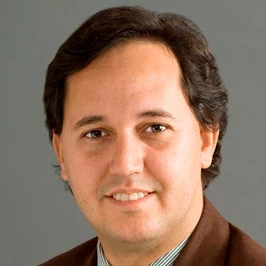The largest Public-Private Partnership deal in Central America was recently highlighted at one of the world’s most prestigious universities during the Massachusetts Institute of Technology’s (MIT) 9th Annual Sustainability Summit. Under this year’s theme, Funding the Future, the event brought together more than 300 participants from students, startup CEOs, academia, think tanks and financial investors.
The World Bank Group PPP highlighted at the MIT session is a proposed light rail train in Guatemala City with over $1 billion in capital expenditure. This PPP investment will improve transportation in Guatemala’s capital city for 260,000 passengers a day. These are mostly out-of-town day laborers going to work at job center districts. It in an investment that will significantly reduce commuting time, boost quality of life, and raise income potential for the poorest of the poor. (Click here to see an image of the proposed light rail train.)
The project is a joint collaboration between two World Bank Global Practices (GPs): Transport & Information and Communication Technology and Trade & Competitiveness—and it has started to change PPP development in Central America.
Other projects receiving support from the World Bank Group’s PPP program include:
-
The southern section of the ring road around San Salvador’s metro area in El Salvador;
-
Honduras has invested more than $750 million in PPPs in recent years and the World Bank Group is helping to manage the country’s fiscal risk;
-
Costa Rica has benefited from the World Bank Group program with support to its fiscal risk PPP instruments;
-
Nicaragua has recently approved its PPP law and regulations and is setting up a PPP Unit within the Ministry of Finance to help a public-private sector dialogue that can boost support for PPPs;
-
Finally, Panama has been receiving World Bank Group advice with regard to drafting their PPP law, its regulations, and further developing a special economic zone.
The Central America PPP program supports PPPs according to each country’s level of development , its needs, and specific issues on project and fiscal sophistication.
The program in a nutshell
This program is divided into three basic pillars: Training, Institutional Strengthening, and Pipeline Development.
Training is offered to all six countries in the region, attracting more than 40 senior Minister of Finance staff. The first training event was focused on Value for Money, Contingent Liabilities pricing and the PPP Fiscal Risk Assessment Model (P-FRAM)—an International Monetary Fund (IMF)-developed fiscal impact financial model.
Institutional strengthening helps Ministry of Finance staff implement financial instruments presented at the training events. It also improves policy dialogue with government officials and stakeholders for and against PPPs.
Pipeline development: the Bank Group and its regional partner, the Central American Bank for Economic Integration (CABEI), is working with a global consulting firm with significant PPP experience to find the best projects to build a deal pipeline for the medium term, so when current deals come to closure, governments can launch a sustainable stream of deals whose features, risks and returns are easily understood by market players and investors alike.
This two-GP program has the broad support needed both internally within the World Bank Group and with strong external partners to leverage resources and boost impact. The U.S. government’s Millennium Challenge Corporation (MCC) is providing $20.5 million in grants to support feasibility studies and transaction fees for three Central American countries; CABEI has provided support in the region; the IMF has helped with knowledge events; and the Inter-American Development Bank is funding feasibility studies in Nicaragua.
The GPs have worked with the International Finance Corporation (IFC), Multilateral Investment Guarantee Agency (MIGA), IFC PPP advisory, and IFC regional heads in Nicaragua, Honduras, El Salvador and Guatemala. MIGA is considering providing a financial guarantee critical to turn the Guatemala light rail train into a real investment. Finally, the Public-Private Infrastructure Advisory Facility (PPIAF) has provided funds for this ambitious program.
Next steps
The World Bank Group team has been called upon to help build and strengthen PPP agencies, laws, regulations, institutions and initial studies for transactions. The team conducts field visits as appropriate. The team will deliver the second PPP training for all countries in the region in Tegucigalpa, Honduras, June 5-9, 2017. Policy dialogue missions in several countries will follow the regional training until the end of this fiscal year.
All that work is the reason why the Bank Group is getting attention from the top academic institutions in the world, including MIT.
You can read more here about the session on PPPs in Sustainable Finance at the MIT summit.



Join the Conversation